Introduction to FR4 Sheets
FR4 is a glass fiber-reinforced epoxy laminate (GFRP) distinguished by its excellent mechanical, electrical, and thermal properties. Thanks to these characteristics, FR4 is primarily used for printed circuit boards (PCBs) and electrical insulation but also finds applications in other sectors like aerospace. The name “FR” stands for “Flame Retardant,” referring to the material’s flame-resistant nature. With its widespread application and standard-compliant processing, FR4 is indispensable in modern technology.
Material Composition of FR4 Sheets
FR4 sheets consist of two essential components: a thermoset epoxy resin matrix and glass fabric as reinforcement.
- Epoxy Resin: The thermoset epoxy resin matrix forms the backbone of FR4 sheets, enabling load transfer to the fabric and providing chemical resistance and electrical insulation. Once cured, the resin offers excellent temperature resistance and withstands thermal stress.
- Glass Fiber Reinforcement: Glass fiber fabric is embedded in the epoxy resin matrix, imparting mechanical stability to FR4 sheets. Due to their high tensile strength, shape retention, and insulating properties, glass fibers are the preferred choice. The primary type of glass fiber used in FR4 is E-glass (glass designed for electrical insulation); around 90% of reinforced glass fabrics are made with E-glass, which primarily consists of alumino-borosilicate.
The combination of epoxy resin and glass fabric gives FR4 sheets exceptional mechanical properties, with glass fibers bearing the load and resin shielding the fibers from environmental factors.
Mechanical and Thermal Properties
The mechanical and thermal properties of FR4 stem from the synergy between epoxy resin and glass fabric. Key properties include:
- Tensile Strength: Thanks to the glass fabric reinforcement, FR4 sheets offer high tensile strength, which is essential in applications involving mechanical stress.
- Flexural Strength: The flexural strength of FR4 ensures that the sheets do not easily break or deform, even under substantial mechanical loads.
- Thermal Stability: FR4 is known for its high glass transition point, enabling it to withstand temperatures up to 130 °C. This thermal resistance is particularly crucial in high-temperature applications like PCB manufacturing.
- Flame Resistance: A notable feature of FR4 is its low flammability. It meets UL94 standard requirements with a V-0 rating, meaning it is highly flame-resistant in case of fire.
Electrical Properties
The electrical insulation capabilities of FR4 sheets make it an ideal material for applications in electrical engineering. Glass fiber-reinforced plastics (GFRP) like FR4 have high dielectric strength, providing effective insulation against electrical voltages. This is particularly important in the production of printed circuit boards, where the material must insulate voltages between layers.
- Creepage Resistance: FR4 offers high resistance to creepage, making it ideal for applications in humid or corrosive environments.
- Dielectric Strength: The material withstands high voltages and remains electrically insulating, even under extreme voltage stress.
Applications of FR4 Sheets
FR4 sheets are utilized in various industries, with a primary focus on the electronics and electrical industries:
- Printed Circuit Boards (PCBs): The most well-known application of FR4 is in PCB manufacturing. Due to its electrical insulation properties and mechanical strength, it is used as a substrate material in almost all modern PCBs. It provides the necessary stability and prevents short circuits between traces.
- Electrical Industry: Beyond PCBs, FR4 is used in the electrical industry for other types of insulation, particularly in high-performance applications where high voltages need insulation.
- Automotive Industry: In vehicles, especially in the fields of electric mobility and electronic control systems, FR4 sheets serve as insulating elements in control units and battery applications.
- Medical Technology: Thanks to its flame-retardant and sterilizable properties, FR4 is increasingly used in medical devices and sensors.
Conclusion
FR4 sheets are an essential solution in modern technology due to their combination of high mechanical stability, excellent electrical insulation properties, and flame resistance. They play a central role in the electronics and electrical industries. The glass fiber-reinforced epoxy resin matrix provides FR4 with its superior properties, qualifying it for use in high-performance environments. GFRP serves as the reinforcement foundation, enabling diverse applications, often under extreme conditions.
Our Selection of FR4 Sheets
Our Product
Vetronite EGS 619
Resin Material: Epoxy
Reinforcement: Glass
Applications: Electrical insulation, Test adapters, Telecommunication
Discover the productOur Product
Vetronite EP GC 202
Resin Material: Epoxy
Reinforcement: Glass
Applications: Electrical insulation, Test adapters, base plates
Discover the product






